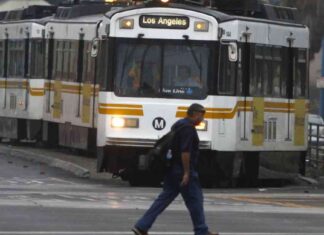Beer is indeed taxed at an average of 46% in Canada, says Philippe Roy, Quebec spokesperson for industrial brewers.
As this is a Canadian average, the percentage varies from province to province. According to 2022 figures, it exceeds 56% in Prince Edward Island, but is only 36% in Quebec, the lowest in the country.
In La Belle Province, the tax arsenal consists of the federal excise tax, which amounts to $2.91 per case of 24 bottles, the specific tax on alcohol in Quebec, which amounts to $5.16 on same packaging, then GST and QST, taxes on taxes.
The average of 46% has in fact been disputed in the past by researchers who estimated it to be between 20 and 30% depending on the province. Journalist André Noël echoed their work in an article published on the Pivot site last April.
The former La Presse journalist’s text followed the Trudeau government’s decision to cap the beer excise tax increase at 2%. Since 2017, the tax increases on April 1 based on the annual change in the Consumer Price Index (CPI) of the previous year. On April 1, 2023, it should have increased by 6.3%.
The Association des brasseurs du Québec, which defends the interests of Molson Corors, AmBev (Labatt) and Sapporo (Sleeman), wanted to reaffirm Monday the veracity of its average of 46%.
Canada has the highest beer taxes among G7 member countries, she said. Japan is at 44% and the UK at 41%. The United States brings up the rear at 17%.
The brewing industry is against the federal government’s automatic excise tax escalator formula, introduced in 2017. The debate will indeed resume next year as inflation hovers around 4% in 2023 .
“In a democracy, the principle that I knew was that if you want to raise taxes, you go to Parliament and we will pass an increase,” Molson Coors Canada boss Frederic Landmeters told reporters Friday on the sidelines of an event. In 2017, what Bill Morneau [Minister of Finance at the time] passed was an annual increase for eternity without having to come back and ask anyone for permission. »
Following the publication of our article on Saturday, readers asked us why non-alcoholic beer sells for the same price as regular beer, if the excise tax and the specific tax do not apply to it. “It’s a question of marketing strategy,” replied Philippe Roy diplomatically.






















